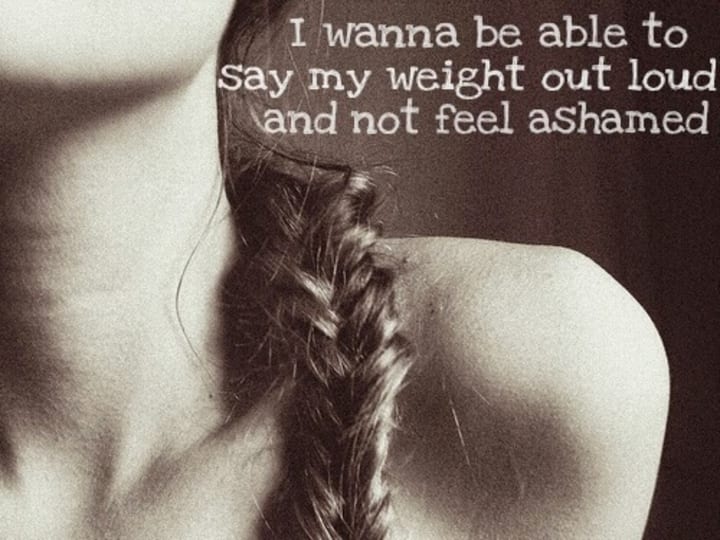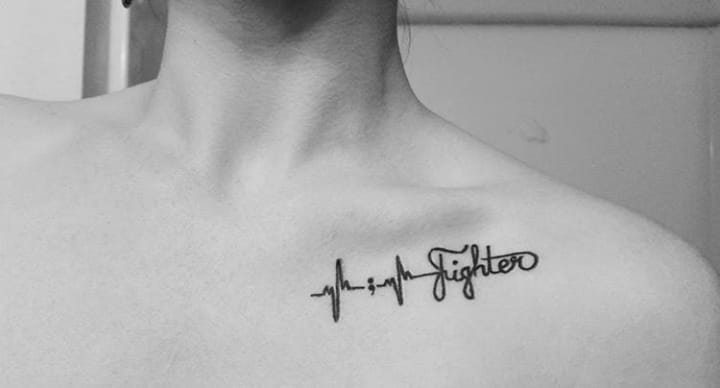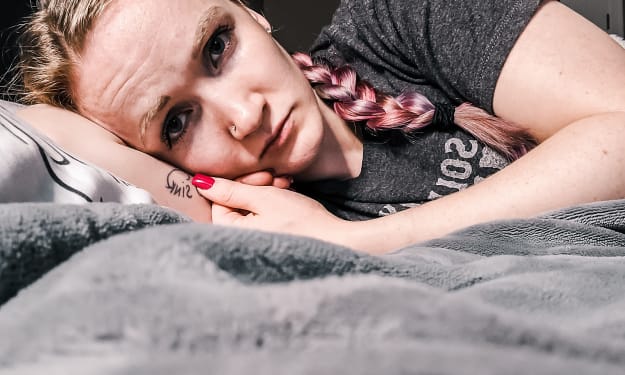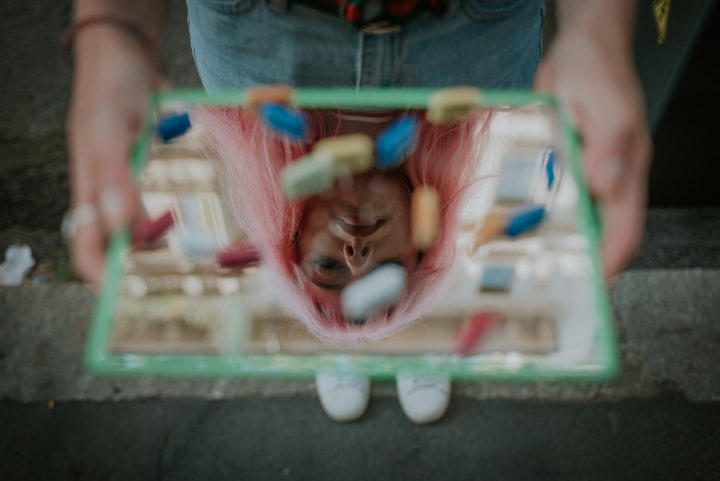Society's Impact on Body Image
The stigma behind an unrealistic goal.

How often do you scroll through Instagram, TikTok, Twitter, or any other social media platform, and see beautiful women, gorgeous men, and individuals that appear absolutely perfect? For me, it’s daily. As a freelancer and lover of social media, I use my platforms often, and I’ve grown tired of the unrealistic standards society has created. This image that everyone has a perfect life, a rocking body, and a mountain of money is a lie. No one is perfect, not even that Instagram influencer model with the perfect tan, beautiful house, and travel history one dreams of -- she has struggles, worries, and dreams she wishes to achieve just like you and me.
See, the thing about our society is that we are so drawn to those perfect images that we strive for them so intensely, or we feel like less-than because we will never BE them. This idea that perfection is possible has taken a toll on men and women of all ages and ethnicities and corrupted our body image to the point of increased mental illnesses and eating disorders. And that is not okay with me.
Did you know that more than 30 million people of all ages and genders suffer from an eating disorder? Of those 30 million, at least one of them dies every hour as a direct result of their eating disorder. And that’s only in the United States. Eating disorders have the highest mortality rate of any mental health illness, and most eating disorders are intensified by other mental illnesses, such as depression, anxiety, and body dysmorphia (just to name a few) -- this is why 1 in 5 anorexia deaths is by suicide. It’s also often believed that only younger individuals suffer from eating disorders, when in reality, 13% of women over the age of 50 will engage in some kind of disordered eating habits. So, what does our society have to do with this, you ask? Let’s get into it.

As I mentioned above, social media platforms are extremely popular and include millions of people around the world, sharing pieces of their lives as they choose. But so many individuals only share what they want to be seen, which is such a tiny portion of their real lives. For example, someone may share their awesome progress picture from their workout journey, but they won’t necessarily share the blood, sweat, and tears it took to get there. The travel blogger will share snapshots of amazing trips they’ve taken, but won’t talk about the stresses and hassles of traveling, like jet lag or fear of flying. That perfect mother of three will constantly talk about her children and how much she loves them, but may never mention the days of feeling inadequate, losing her temper, or the fact that her kids drive her crazy 90% of the time.
The truth is, no one will ever know the real truth of the lives we see on social media, and that’s okay. But it’s also important to remember that those aren’t OUR lives. We have the power to live on our own terms, make our own choices, and be our own person. Striving for unrealistic goals, whether it be a body or a lifestyle or a financial success, can cripple you. For me, I spent too many years watching women with perfect bodies, beautiful and flawless skin, and great hair. Social media and the impact of society played a big part in the development of my disordered eating and body dysmorphia. Of course, my mental state played a role as well, but this stigma around being perfect only intensified my goals.

I stopped eating and worked out daily, sometimes twice a day. I weighed myself three times a day, measured my body parts -- usually focusing my waist, thighs, and upper arms. I strived to have the ultimate “thigh gap,” even after finding out that that’s not possible for some, based on their anatomy and how their bones are structured. I took pictures from different angles, seeing which ones showed the most bones, and I would make myself puke if I failed to meet my “goals.” But none of these things were goals -- they were death sentences waiting to happen.
Eventually, I found an online community of like-minded individuals from around the world that were all striving for similar things -- thigh gaps, protruding spines and hip bones, sharp collar bones, a new “lowest weight.” I watched some of these women reach unthinkable weights -- like 76 pounds for a 26-year-old at 5’7”. She later suffered from a seizure as a result of hypokalemia, or low potassium. She was hospitalized for weeks and later admitted to a treatment facility. Or another women who became so depressed and angry with her body that she attempted suicide by lighting herself on fire. Although she was unsuccessful, she continued to kill her body, slowly, until finally coming to the realization that she had a choice to get better. And she did.

Most of the women I connected with through this community hit rock bottom multiple times, striving for these unrealistic body images that they would never reach, myself included. And those I’m still in touch with have since recovered and are doing much better. But not all of them. Two of them died, that I know of, due to their eating disorder and other mental health illnesses.
The stigma that society has created regarding “the perfect body” is well known and often frowned upon, yet it continues to have control. That being said, myself and many others have taken a stand and spoken out about how this stigma and this image is destroying our generation. I’ve personally shared my story dealing with body dysmorphia and developing an eating disorder and how society’s idea of the “perfect body” had an impact on my mental health. Some may think, “how can a picture sway so many minds?” It’s simple, really. For those of us that are mentally vulnerable and struggling with our self image, seeing a picture tells us that we need to do better, be better than what we are. Especially when that picture is actually thousands of pictures of different people, circulating social media platforms like bacteria in a toilet bowl. It’s a never-ending cycle that reaches millions of people, many of whom are already suffering with poor body image.

I know this stigma won’t end, and these perfect images of bodies and lifestyles will continue to impact our society, but I hope this helps one less soul be a victim of body shaming due to social media. All bodies are beautiful and worthy, no matter the shape, size, or color. This is an issue truly close to my heart, and I will continue to speak out and fight to end this unrealistic image our society has created. Join me. Tell someone they’re beautiful. Better yet? Tell someone they are WORTHY. Of beauty, of love, of happiness, of success. Of anything those “perfect people” have, they can have, too, without changing a damn hair on their heads. We are all worthy of everything we desire, just as we are.
About the Creator
Ashley Beatty-Pernetti
Wife. Mom. Creator.
Just a messy 29-year-old, wading her way through life, one word at a time.
Raising mental health awareness with the written word and firsthand experience.
Both fiction and non-fiction stories to nourish your soul.






Comments
There are no comments for this story
Be the first to respond and start the conversation.